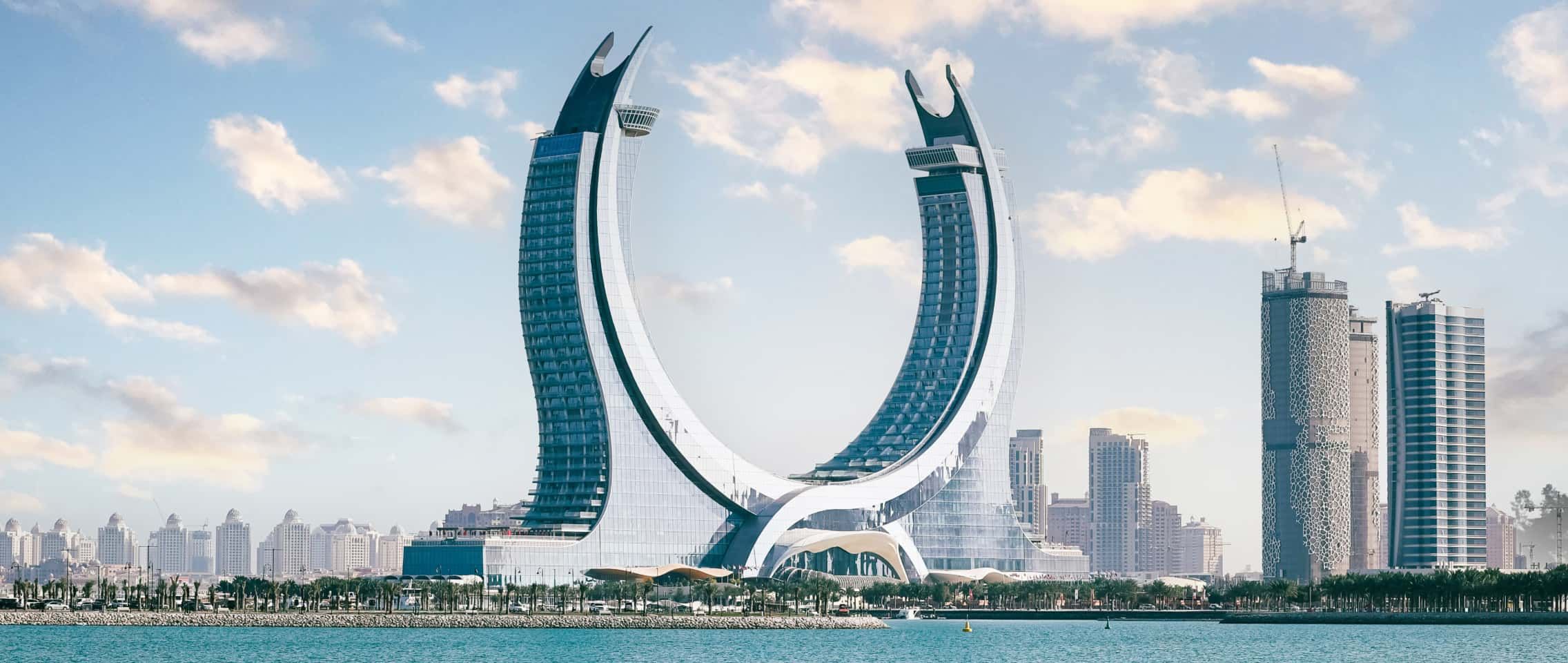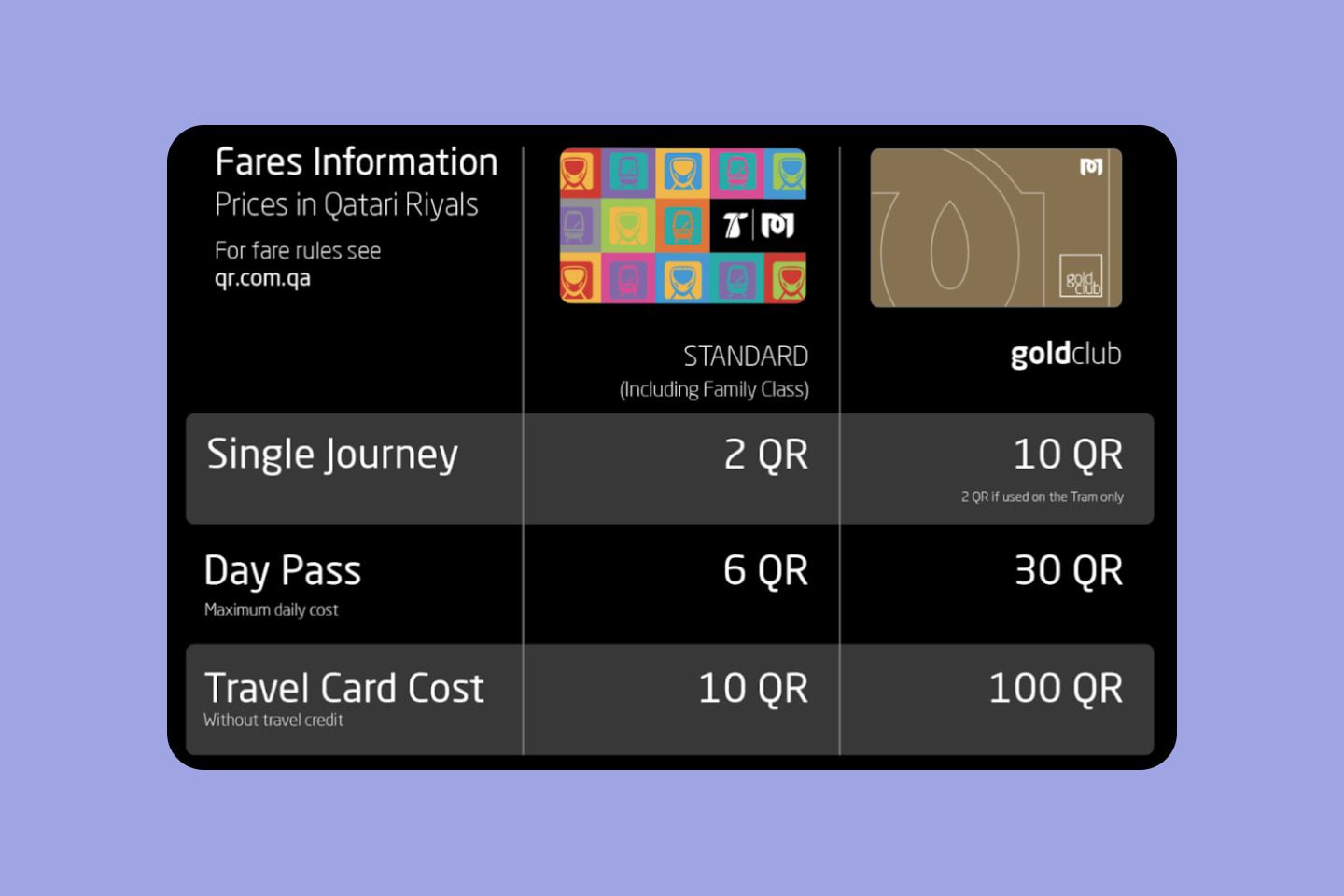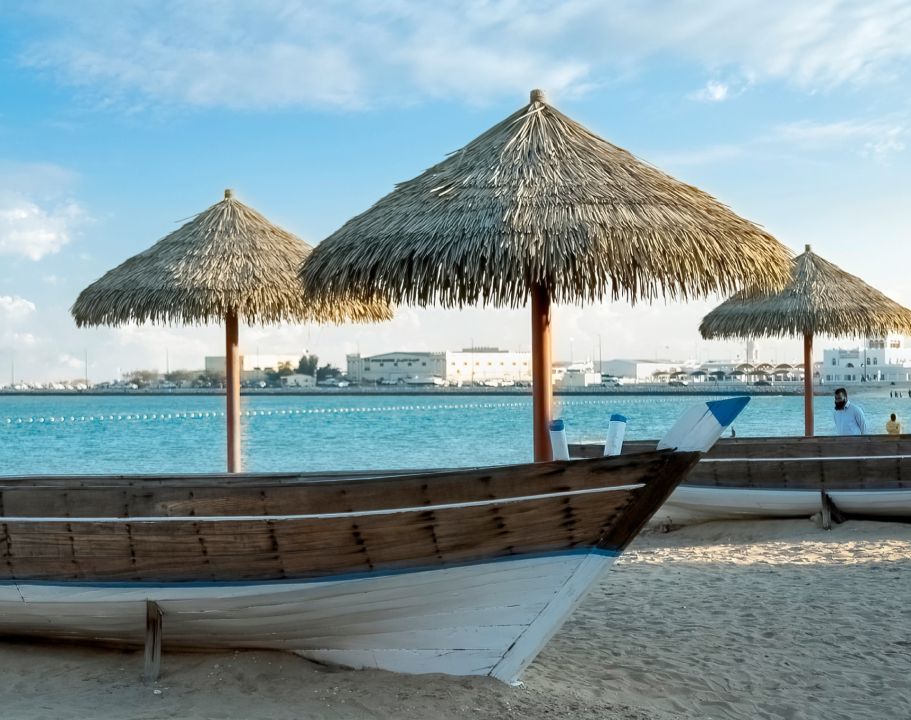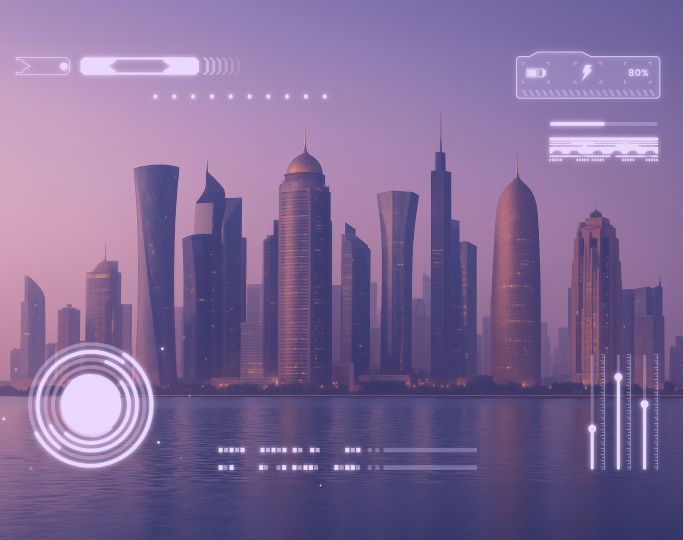Contents
Considering moving to Qatar? With its steady economy, lower cost of living than the UAE and the US, and the highest salaries in the region, we’d say you’re making the right call.
To help you navigate relocation, we’ve compiled a thorough guide on everything you need to know about the cost of living in Qatar. We included the average rent, transportation, food prices, healthcare costs, and expenses for entertainment and education, both for Qatar in general and for Doha specifically.
Salaries in Qatar
Before we delve into your expenses in Qatar, let’s take a look at how much you can expect to earn.
The average salary in Qatar sits around QAR 13,000 per month. And, here are the average monthly earnings in the country, by position:
| Position | Earnings |
| Medical specialists | QAR 15,000–50,000 |
| Project managers | QAR 15,000–35,000 |
| Engineers | QAR 13,000–28,000 |
| IT professionals | QAR 10,000–25,000 |
| International teachers | QAR 8,000–16,000 |
| Marketing and PR professionals | QAR 7,500–15,000 |
| Banking employees | QAR 7,000–18,000 |
| Manual workers | QAR 4,000–11,000 |
Experts can earn higher salaries, bonuses, and additional allowances for their specific roles.
Accommodation
Accommodation costs eat into the bulk of our earnings. To help with accounting for these expenses, we’ve calculated the average rent prices in Qatar, based on current listings:
-
QAR 2,000–6,000 for studio apartments
-
QAR 3,200–9,000 for one-bedroom apartments
-
QAR 8,000–15,000 for three-bedroom apartments
-
QAR 10,000–35,000 for a four-bedroom villa
Apart from rent, you need a monthly budget for utilities, which typically include electricity, water, garbage collection, internet, and phone bills. Expect to spend approximately QAR 500 on water and electricity per prevailing Kahramaa tariffs, QAR 300 for high-speed internet, and QAR 200 for additional home expenses.
Food and dining
Despite relying on imports, food in Qatar is moderately priced. Residents can choose from dining out, ordering in, or cooking their meals.
Cooking your food significantly reduces living costs in Qatar. You can even purchase groceries in bulk from grocery stores, supermarkets, and local markets (souqs).
The table below summarizes the average prices for popular food products in Qatar. And, if you want to monitor the price changes, you can track the daily costs of food via the Ministry of Commerce and Industry website.
|
Product |
Quantity |
Price |
|
Local beef |
1 kilogram |
QAR 30 |
|
Tomatoes |
1 kilogram |
QAR 6 |
|
Milk |
1 liter |
QAR 7 |
|
Rice |
5 kilograms |
QAR 25 |
|
Raisins |
1 kilogram |
QAR 10 |
|
Eggs |
30-piece pack |
QAR 20 |
|
Cooking oil |
1 liter |
QAR 15 |
|
Red onions |
1 kilogram |
QAR 3.50 |
|
Bananas |
1 kilogram |
QAR 5 |
|
Dill, parsley |
1 kilogram |
QAR 4 |
When it comes to dining out, residents have different options depending on their budget. The most affordable option is eating at neighborhood or street restaurants, where prices go from QAR 15 to 80 per meal. Moreover, a decent meal in a mid-range restaurant costs between QAR 80 and 200 per person. And, for a dinner in luxurious or high-end restaurants and hotels, be prepared to spend at least QAR 300.
For dining in, you can choose from various delivery services, such as Snoonu, Talabat, Rafeeq, and Deliveroo. They work with local restaurants, restaurant chains, retail stores, and supermarkets. Delivery charges highly depend on location, but typically start from QAR 5.
A cup of coffee costs between QAR 5 and QAR 50 per cup. You can also enjoy Karak tea (local spiced black tea) for as little as QAR 1.
Transportation
You can travel around Qatar by light rail (Metro and Lusail tram), bus, taxi, or private car.
The Metro network runs between Al Wakra and Lusail City and is complemented by buses and trams that run through Lusail City. A day pass starts from QAR 6.
Furthermore, a public bus transportation system (locally known as Karwa) serves Doha, Umm Salal, Al Khor, Industrial Area, Dukhan, Abu Nakhla, Al Rayyan, and Messaid. Traveling on Karwa buses costs between QAR 2.50 and QAR 9 per trip.
You can also opt for ride-hailing services. Internationally recognized brands, like Uber, operate in Qatar, as well as local taxis such as Karwa, Badrgo, and Aabir. The base prices for a taxi trip are QAR 5–8. The rates are QAR 1.5 or more per kilometer.
If you own or rent a vehicle in Qatar, you’ll spend QAR 1.95 for every liter of gasoline and diesel. You also need a budget for regular vehicle maintenance and parking fees. Parking fees depend on the location, with the lowest being QAR 15 per hour.
Healthcare
The Qatar government mandates that every visitor and resident must have medical insurance. Residents pay between QAR 400 and QAR 1,500 monthly for private, long-term health insurance policies.
Moreover, a mandatory travel insurance for Qatar policy costs around QAR 50 per month.
Entertainment and education
In their free time, Qatari residents typically go to the movies, museums, gyms, or enjoy water sports.
Movie theater tickets are priced between QAR 35 and QAR 100 per view, while fitness subscription fees cost around QAR 500 per month in a modest gym.
Entries to the National Museum of Qatar and the Museum of Islamic Art are free for residents. Visitors have to pay a fee, which is between QAR 25 and QAR 50, depending on the tour type.
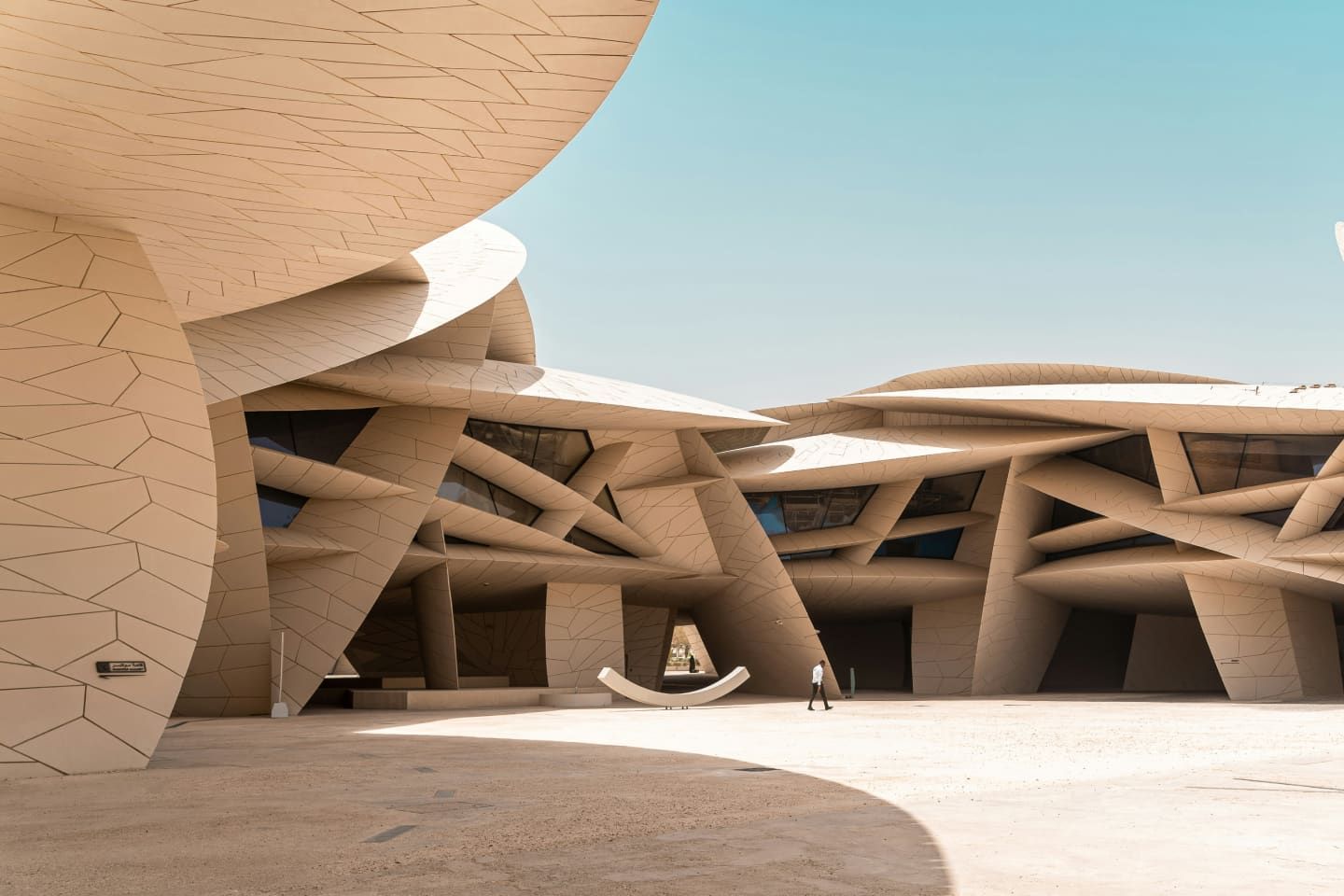
Water sports can be a bit costly. For instance, a speedboat is about QAR 500 per hour. And, if you’re looking for something fancier, a yacht is QAR 1000 per hour to rent, and accommodates up to eight people.
Your living costs in Qatar will rise significantly if you have children enrolled in a school. Tuition fees will range between QAR 20,000 and QAR 85,000 per year. On the upside, Qatari citizens have access to free education in public learning institutions.
Cost of living in Doha
Most of Qatar’s population resides in or near Doha, and the city’s satellite towns are a few hours away. That’s why most of the expats choose Doha or the surrounding areas for their first place of residence.
Despite being the capital, living in Doha isn’t that expensive. In fact, according to Mercer, the cost of living in Doha is lower than in Dubai, Riyadh, and Jeddah. Doha is also less costly than New York, Zurich, Singapore, and Hong Kong.
To help you get an estimate of how much it would cost to live here, we’ve calculated the average rent prices based on local listings:
|
Location |
Studio apartment |
One-bedroom apartment |
Two-bedroom apartment |
Three-bedroom apartment |
Villa (four+ bedrooms) |
|
West Bay |
QAR 6,000 |
QAR 9,000 |
QAR 12,500 |
QAR 14,000 |
QAR 30,000 |
|
Al Saad |
QAR 4,000 |
QAR 6,000 |
QAR 7,300 |
QAR 9,000 |
QAR 14,000 |
|
Old Airport |
QAR 2,500 |
QAR 4,500 |
QAR 6,000 |
QAR 8,000 |
QAR 15,000 |
|
Pearl |
QAR 6,000 |
QAR 7,500 |
QAR 12,000 |
QAR 15,000 |
QAR 30,000 |
|
Lusail |
QAR 4,500 |
QAR 8,000 |
QAR 10,000 |
QAR 15,000 |
QAR 35,000 |
|
Al Wakra |
QAR 2,000 |
QAR 3,200 |
QAR 4,000 |
QAR 5.500 |
QAR 10,000 |
|
Umm Salal |
QAR 2,500 |
QAR 4,000 |
QAR 6,500 |
QAR 7,500 |
QAR 13,000 |
Restaurants in Doha will cost between QAR 20 and QAR 300 per meal. Small restaurants and fast food joints tend to be cheaper, selling fries, chicken, tortillas, or burgers for around QAR 10. Mid-range restaurants typically offer foods from a specific cuisine and are pricier, up to QAR 200 per meal. High-end hotels will charge as high as QAR 300 for a single meal.
The most popular public transportation methods in Doha are the Metro, taxis, public buses, and pay-as-you-go rental bikes. Rental bikes are available for QAR 25 per hour.
There is also a public sightseeing bus that takes visitors around the city, which you can use for transport and sightseeing. The Doha Bus is QAR 200 per ticket, usable for 24 hours.
How to keep living costs low
Are you overwhelmed with these price tags and looking for ways to cut down your expenses? Don’t worry, there are ways to live in Qatar on a budget.
For instance, always be on the lookout for offers from your favorite shopping spots. You can land massive discounts on food, clothes, and entertainment. Also, prioritize cooking your food instead of dining out, and try to purchase the majority of your groceries and drinks in bulk.
In addition, utilize public transport as much as possible. You can access most parts of Qatar and the city by public transport. Consider ride-sharing if you prefer cars.
Maximize the utilization of free public spaces, parks, and social amenities during your free time. You can visit parks such as Al Bidda, Corniche, Souq Waqif Park, public beaches like Katara and Al Maroona, and the Qatar National Library, which can be visited for free.
When visiting hospitals, always use your medical insurance card. For rentals, compare and negotiate rental costs where possible. Explore different properties before committing.
FAQ
How much is rent in Qatar?
Is Qatar expensive to live in?
What is the cost of living in Qatar per month?
